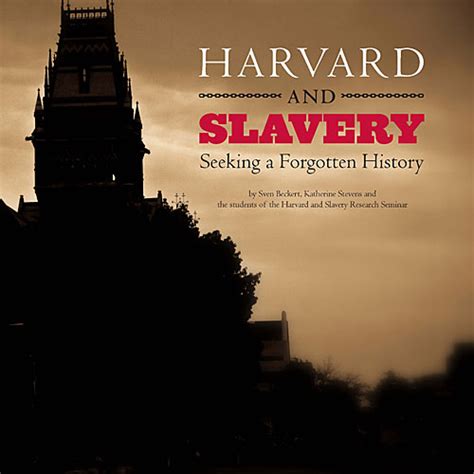
A Kentucky state representative, Jim Gooch Jr., a Democrat who has served in the state legislature for nearly three decades, is switching parties to become a Republican, a move that has sent tremors through the Kentucky political landscape. Gooch, who represents District 12, encompassing Webster and McLean counties, announced his decision on Friday, citing the increasingly liberal direction of the Democratic Party as the primary catalyst for his departure.
Jim Gooch Jr.’s party switch marks a significant shift in Kentucky’s political alignment, potentially signaling further realignment in the state’s political landscape. Gooch’s announcement, made public on Friday, brings an end to his nearly 30-year tenure as a Democrat, a period during which he held significant sway, particularly on energy and environmental issues. He stated, “The Democrat Party has evolved into a party I simply don’t recognize anymore. Their stances on coal, on energy, and on so many social issues are just not in line with the values of my district or my own beliefs.”
Gooch’s decision underscores the growing divide between rural, conservative-leaning districts and the national Democratic Party, a trend that has been accelerating in recent years. Kentucky, once a Democratic stronghold, has increasingly leaned Republican in statewide and national elections. This shift is largely attributed to changing demographics, cultural issues, and economic anxieties, particularly in the state’s coal-producing regions.
The timing of Gooch’s announcement is particularly noteworthy, coming just months before the crucial November elections. While Gooch himself is not up for reelection this year, his move could galvanize Republican voters and energize efforts to further consolidate the party’s dominance in the state legislature. Kentucky Republicans already hold supermajorities in both the House and Senate, giving them virtually unchecked power to enact their legislative agenda.
Gooch’s long tenure in the Kentucky House made him a powerful figure, particularly within committees dealing with energy and environmental regulations. His expertise and influence on these issues will now be wielded in service of the Republican Party, a development that is likely to have significant ramifications for the state’s energy policy. Gooch has been a vocal advocate for the coal industry throughout his career, often clashing with environmental groups over regulations he argued would harm the state’s economy.
The Kentucky Democratic Party has yet to issue a formal statement on Gooch’s defection, but sources within the party have expressed disappointment. Some have accused Gooch of opportunism, suggesting that his move is motivated by a desire to maintain his political relevance in a state that is increasingly hostile to Democrats. Others acknowledge that Gooch’s departure reflects a broader challenge facing the party as it struggles to connect with rural voters.
The political ramifications of Gooch’s switch extend beyond Kentucky. It serves as a stark reminder of the ongoing realignment taking place in American politics, with rural areas becoming increasingly Republican and urban areas becoming increasingly Democratic. This polarization poses significant challenges for both parties as they seek to build broad coalitions and govern effectively.
Looking ahead, it remains to be seen whether other Democratic lawmakers in Kentucky will follow Gooch’s lead. Several other Democrats represent districts that voted overwhelmingly for Donald Trump in 2020, and they may face increasing pressure to switch parties as well. The future of the Democratic Party in Kentucky hinges on its ability to reconnect with rural voters and articulate a message that resonates with their concerns.
For the Republican Party, Gooch’s arrival represents a significant victory. It further solidifies their dominance in the state legislature and sends a message to other potential defectors that the party is open and welcoming. However, the Republicans also face the challenge of managing internal divisions as they seek to accommodate new members from diverse backgrounds and with varying political views.
Political analysts suggest Gooch’s decision is a calculated one, reflecting not only his personal beliefs but also the changing political realities in Kentucky. “Kentucky has been trending Republican for years, and Gooch is simply recognizing that fact,” said Dr. Emily Crawford, a political science professor at the University of Kentucky. “He likely sees this as the best way to ensure his continued political relevance and influence.”
Gooch’s switch is also likely to embolden Republican efforts to further restrict abortion access, loosen environmental regulations, and enact other conservative priorities. With supermajorities in both chambers, the Republicans have the power to override vetoes from Democratic Governor Andy Beshear, giving them virtually unchecked control over the state’s legislative agenda.
The political landscape in Kentucky has undergone a dramatic transformation in recent decades. Once a reliably Democratic state, Kentucky has increasingly embraced Republican candidates and policies. This shift is attributable to several factors, including the decline of the coal industry, the rise of social conservatism, and the increasing polarization of American politics.
The decline of the coal industry has had a particularly profound impact on Kentucky politics. As coal jobs have disappeared, many working-class voters have turned to the Republican Party, which they see as more supportive of their economic interests. Social conservatism has also played a significant role in Kentucky’s political shift. Republican candidates have successfully mobilized socially conservative voters on issues such as abortion, same-sex marriage, and gun control.
The increasing polarization of American politics has also contributed to Kentucky’s shift to the right. As the two parties have become more ideologically distinct, many voters have become more likely to vote straight-ticket for one party or the other. This trend has benefited the Republican Party in Kentucky, as the state’s electorate has become increasingly Republican.
Gooch’s defection underscores the challenges facing the Democratic Party in rural America. As rural areas become increasingly Republican, Democrats must find ways to reconnect with rural voters and articulate a message that resonates with their concerns. This will require a willingness to engage in dialogue, understand local issues, and offer practical solutions to the challenges facing rural communities.
The future of the Democratic Party in Kentucky depends on its ability to adapt to the changing political landscape and build a broad coalition that includes both urban and rural voters. This will require strong leadership, effective messaging, and a willingness to compromise on certain issues. The party must also focus on recruiting and supporting candidates who can connect with voters across the political spectrum.
Gooch’s move to the Republican Party also has implications for the upcoming elections. While he is not up for reelection this year, his defection could energize Republican voters and make it more difficult for Democrats to compete in close races. The Republican Party is likely to use Gooch’s defection as a symbol of the Democratic Party’s decline in Kentucky and as a rallying cry for Republican voters.
The Kentucky Democratic Party faces a daunting task in the coming years. To regain its footing in the state, it must address the concerns of rural voters, build a broader coalition, and develop a clear and compelling message. The party must also be willing to adapt to the changing political landscape and embrace new strategies for reaching voters.
FAQ: Jim Gooch Jr.’s Party Switch
1. Why did Jim Gooch Jr. switch from the Democratic Party to the Republican Party?
Gooch cited the increasingly liberal direction of the Democratic Party as the primary reason for his departure. He stated that the party’s stances on coal, energy, and social issues are not aligned with the values of his district or his own beliefs. “The Democrat Party has evolved into a party I simply don’t recognize anymore,” Gooch said.
2. What is Jim Gooch Jr.’s background and political experience?
Jim Gooch Jr. has served as a Kentucky state representative for District 12 (Webster and McLean counties) for nearly three decades. He has been a prominent figure in the state legislature, particularly on issues related to energy and environmental regulation.
3. How might Gooch’s party switch affect the political landscape in Kentucky?
Gooch’s switch could galvanize Republican voters and further consolidate the Republican Party’s dominance in the state legislature, where they already hold supermajorities in both the House and Senate. It also highlights the ongoing political realignment in Kentucky, where the state has been trending Republican in recent years. The move will allow Gooch to yield his expertise on energy and environmental issues in service of the Republican Party.
4. What are the potential consequences for the Kentucky Democratic Party?
The defection is a blow to the Kentucky Democratic Party, which is already struggling to compete in rural areas of the state. It underscores the challenges the party faces in connecting with rural voters and articulating a message that resonates with their concerns. It may also prompt other Democratic lawmakers in conservative-leaning districts to consider switching parties.
5. What are the implications of this switch for energy and environmental policy in Kentucky?
Gooch has been a vocal advocate for the coal industry throughout his career. His switch to the Republican Party could lead to a further loosening of environmental regulations and increased support for coal-related industries. This is because Republicans have almost unchecked control over the state’s legislative agenda due to the supermajorities in both chambers of legislature.
In-Depth Analysis and Expanded Context
Jim Gooch Jr.’s decision to leave the Democratic Party and join the Republican ranks is more than just a personnel change; it represents a confluence of long-term trends and immediate political calculations that are reshaping the political landscape of Kentucky and, to some extent, the broader national stage. His move should be analyzed considering several key factors: the demographic shifts in Kentucky, the ideological polarization of American politics, and Gooch’s own personal and political trajectory.
Demographic and Economic Shifts in Kentucky:
Kentucky, historically a Democratic state, has experienced a significant political transformation over the past few decades. This shift is largely attributed to demographic and economic changes, particularly in rural areas. The decline of the coal industry, once a dominant economic force in eastern Kentucky, has left many communities struggling with unemployment and economic insecurity. As coal jobs have disappeared, many working-class voters have turned to the Republican Party, which they perceive as more supportive of their economic interests.
The Republican Party has successfully capitalized on this economic anxiety by framing the Democratic Party as being out of touch with the concerns of working-class voters. Republican candidates have consistently emphasized their support for the coal industry and have criticized environmental regulations that they argue are harmful to the state’s economy. This message has resonated with many voters in eastern Kentucky, who feel that the Democratic Party has abandoned them.
In addition to the decline of the coal industry, Kentucky has also experienced a broader demographic shift, with many rural areas becoming more socially conservative. This trend has been fueled by factors such as the rise of evangelical Christianity and the increasing polarization of American politics. Republican candidates have successfully mobilized socially conservative voters on issues such as abortion, same-sex marriage, and gun control.
The combination of economic anxiety and social conservatism has created a potent political force in Kentucky, which the Republican Party has successfully harnessed. This has led to a dramatic shift in the state’s political alignment, with the Republican Party now holding supermajorities in both the House and Senate.
Ideological Polarization of American Politics:
The ideological polarization of American politics has also played a significant role in Kentucky’s political transformation. As the two major parties have become more ideologically distinct, many voters have become more likely to vote straight-ticket for one party or the other. This trend has benefited the Republican Party in Kentucky, as the state’s electorate has become increasingly Republican.
The Democratic Party has struggled to compete in this polarized environment. The party’s base is increasingly concentrated in urban areas, while rural areas have become increasingly Republican. This has made it difficult for Democrats to win statewide elections in Kentucky, as they struggle to appeal to voters in both urban and rural areas.
The increasing polarization of American politics has also made it more difficult for politicians like Jim Gooch Jr. to remain in the Democratic Party. As the Democratic Party has become more liberal, politicians with more conservative views have faced increasing pressure to switch parties. Gooch’s decision to switch to the Republican Party is a reflection of this trend.
Jim Gooch Jr.’s Personal and Political Trajectory:
Jim Gooch Jr.’s decision to switch to the Republican Party is also a reflection of his own personal and political trajectory. Gooch has served as a Kentucky state representative for nearly three decades, and he has always been known as a conservative Democrat. He has consistently advocated for the coal industry and has often clashed with environmental groups over regulations that he argued would harm the state’s economy.
As the Democratic Party has become more liberal, Gooch has found himself increasingly at odds with the party’s leadership. He has been a vocal critic of the party’s stance on issues such as coal, energy, and social issues. His decision to switch to the Republican Party is a culmination of these growing disagreements.
Gooch’s decision is also likely influenced by the changing political realities in Kentucky. As the state has become more Republican, Gooch has likely realized that his political future is more secure in the Republican Party. By switching parties, he can align himself with the dominant political force in the state and ensure his continued political relevance.
Consequences and Implications:
Jim Gooch Jr.’s decision to switch to the Republican Party has several significant consequences and implications for Kentucky politics and beyond.
- Further Consolidation of Republican Power: Gooch’s switch further solidifies the Republican Party’s dominance in Kentucky. With supermajorities in both the House and Senate, the Republicans have the power to enact their legislative agenda with little or no opposition from the Democrats. Gooch’s addition to the Republican caucus will only strengthen their position.
- Challenges for the Kentucky Democratic Party: Gooch’s defection is a significant blow to the Kentucky Democratic Party, which is already struggling to compete in rural areas of the state. It underscores the challenges the party faces in connecting with rural voters and articulating a message that resonates with their concerns.
- Shift in Energy and Environmental Policy: Gooch’s expertise and influence on energy and environmental issues will now be wielded in service of the Republican Party. This could lead to a further loosening of environmental regulations and increased support for coal-related industries.
- National Implications: Gooch’s switch is a reminder of the ongoing political realignment taking place in American politics, with rural areas becoming increasingly Republican and urban areas becoming increasingly Democratic. This polarization poses significant challenges for both parties as they seek to build broad coalitions and govern effectively.
Looking Ahead:
The future of the Democratic Party in Kentucky depends on its ability to adapt to the changing political landscape and build a broad coalition that includes both urban and rural voters. This will require strong leadership, effective messaging, and a willingness to compromise on certain issues. The party must also focus on recruiting and supporting candidates who can connect with voters across the political spectrum.
The Republican Party, on the other hand, faces the challenge of managing internal divisions as they seek to accommodate new members from diverse backgrounds and with varying political views. The party must also avoid becoming complacent and continue to reach out to new voters.
Jim Gooch Jr.’s decision to switch to the Republican Party is a significant event that reflects the ongoing political transformation in Kentucky. It underscores the challenges facing the Democratic Party and the opportunities for the Republican Party. It also serves as a reminder of the increasing polarization of American politics and the importance of building broad coalitions to govern effectively.
The impact of Jim Gooch Jr.’s party switch will be felt throughout Kentucky’s political system. His decades of experience in the legislature, particularly on energy and environmental issues, will now be used to advance Republican priorities. This represents a significant shift in the balance of power and could have lasting consequences for the state’s policies and direction.
Furthermore, Gooch’s defection could inspire other conservative Democrats in Kentucky to consider switching parties. This could further erode the Democratic Party’s base in the state and accelerate its decline. The Democratic Party will need to undertake a significant rebuilding effort to regain its competitiveness in Kentucky.
On the other hand, the Republican Party will need to integrate Gooch and other potential defectors into its ranks while maintaining unity within the party. The Republican Party is a diverse coalition, and it will need to manage internal divisions to avoid alienating any of its members.
The political earthquake caused by Jim Gooch Jr.’s party switch will continue to reverberate throughout Kentucky for months and years to come. It is a sign of the changing times and the challenges facing both major parties in the state. The future of Kentucky’s political landscape will depend on how these parties respond to these challenges.
The Role of Identity and Values:
Gooch’s departure highlights the growing importance of identity and values in shaping political allegiances. He explicitly stated that the Democratic Party no longer aligns with his personal values and the values of his constituents. This underscores how cultural and social issues are increasingly driving political decisions, especially in regions where traditional party loyalties are weakening.
The Republican Party has successfully tapped into these sentiments by positioning itself as the defender of traditional values and cultural identity. This message resonates strongly with many voters in rural Kentucky who feel that their way of life is under threat from outside forces. The Democratic Party, on the other hand, is often perceived as being too focused on urban issues and out of touch with the concerns of rural communities.
This divide over identity and values is not unique to Kentucky. It is a growing trend across the United States, as evidenced by the rise of populism and nationalism in both parties. This trend poses a significant challenge to the traditional two-party system and could lead to further political realignment in the years to come.
The Future of Rural Politics:
Jim Gooch Jr.’s party switch is a microcosm of the broader challenges facing the Democratic Party in rural America. As rural areas become increasingly Republican, Democrats must find ways to reconnect with rural voters and articulate a message that resonates with their concerns. This will require a willingness to engage in dialogue, understand local issues, and offer practical solutions to the challenges facing rural communities.
The Democratic Party must also address the perception that it is out of touch with the values and concerns of rural voters. This will require a renewed focus on issues such as economic opportunity, education, and healthcare, as well as a greater appreciation for the cultural and social traditions of rural communities.
The future of rural politics depends on the ability of both parties to bridge the divide between urban and rural America. This will require a commitment to dialogue, understanding, and compromise, as well as a willingness to address the real challenges facing rural communities.
Conclusion:
Jim Gooch Jr.’s decision to leave the Democratic Party and join the Republican ranks is a significant event that reflects the ongoing political transformation in Kentucky. It underscores the challenges facing the Democratic Party in rural America and the opportunities for the Republican Party. It also serves as a reminder of the increasing polarization of American politics and the importance of building broad coalitions to govern effectively. His departure highlights the growing divide between the Democratic party and the population of Kentucky, whose views often do not align with the Democratic party’s increasingly liberal views. The political repercussions of Gooch’s party switch will remain to be seen in the coming months and years.
In summary, Jim Gooch Jr.’s switch from Democrat to Republican is a multifaceted event driven by demographic shifts, ideological polarization, and personal political calculations. It highlights the challenges facing the Democratic Party in rural areas, the increasing importance of identity and values in shaping political allegiances, and the ongoing realignment of American politics. The long-term consequences of this switch will depend on how both parties respond to these trends and whether they can bridge the divide between urban and rural America.









